In the next segment of this series, we will be looking at Shaun Cooks’ experience with the criminal justice system in his home town of Hearne, Texas. If you don’t know who Shaun is, you can find earlier segments here. But you can’t understand what happened to Shaun until you grasp a few basic facts about his world.
Shawn Cooks grew up in a police state. Hearne, Texas is the county seat of Robertson County, a region ruled by the notorious John Paschall. In a previous article in this series, we learned that Paschall’s first flirtation with public attention came in 1984. Billy Sol Estes, a conman recently freed from prison, approached the newly minted Robertson County DA. In exchange for a get out of free card, Estes was willing to testify that LBJ had ordered a whole series of murders, including the assassination of JFK. Since LBJ and all the other men Billie Sol implicated were long dead, there wasn’t much Paschall could do with that information, but it got his name in the New York Times.
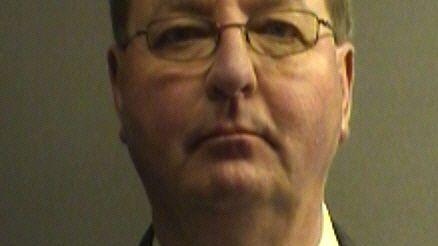 John Paschall
John PaschallThe ultraconservative Paschall likely drew immense satisfaction from the fact that Estes’ scandalous allegations threw shadow on LBJ’s civil rights legacy.
We have also seen that Paschall was indicted in 1987 for stealing money from the hot check fund that his office oversaw. A couple of years prior to that, Paschall had been arrested for driving under the influence and the IRS had placed several liens on Paschall’s property for failure to pay his income taxes. He was also sued for failure to pay a school loan.
Paschall was voted out of office in 2012 after being accused of stealing hundreds of thousands of dollars from the estate of Marium Jeanette Oscar. Four years later, he plead guilty to this crime and spent 30 whole nights in prison.
How was such a thoroughly reprehensible person repeatedly elected as District Attorney of Robertson County? By delivering the goods. Every year, Paschall got in front of the cameras and announced that another successful drug bust was sending a dozen hardened drug dealers to prison.
Like most rural counties in Texas, Robertson County was part of a narcotics taskforce. Some of these cooperative efforts united two dozen counties in the war on drugs; but Robertson County had only teamed up with neighboring Limestone County and no Limestone officials were actively involved in the Task Force’s work. Everyone understood that Paschall was the brains of the operation, micromanaging every detail.
In 2000, Will Harrell, the executive director of the Texas ACLU, took a particular interest in Paschall’s annual drug harvest. The year before, Friends of Justice, the organization I lead, had alerted Harrell to a massive, task force organized, drug bust in Tulia, Texas (a town roughly the same size as Hearne). The two-dozen people arrested in Hearne was only half the size of the haul in Tulia, but the two operations had much in common.
In Tulia, 46 arrests rested on the uncorroborated word of Tom Coleman, a gypsy cop who typically spent just long enough in any one town to gin up a scandal. Coleman rarely paid bills to local merchants and didn’t stay long in any law enforcement job before accusations of racism and impropriety began to fester. He had a gift for disappearing in the middle of the night, just before the axe came down. No one bothered to check Coleman’s references, largely because he was the only applicant for the low-paying undercover position.
In Paschall’s operation, all the cases for 2000 hinged on the testimony of Derrick Megress (aka “Little D”), a drug-addicted young man with a history of mental illness. Paschall knew about his informant’s issues because, in the past, the DA had Megress committed to a mental institution. (Two documentaries produced by Sarah and Emily Kunstler provide the perfect introduction to both the Tulia and Hearne operations
The ACLU got involved in Tulia and Hearne because narcotics task forces, especially in Texas, were out of control. “The fundamental problem is that you have these task forces out there operating with little or no supervision and absolutely no state or federal accountability,” Will Harrell, then executive director of the Texas ACLU, said at the time. “No one is accepting responsibility, and the task forces have one motive and one motive only: to produce numbers lest they lose their funding for the next year. But no one questions how they go about their business.”
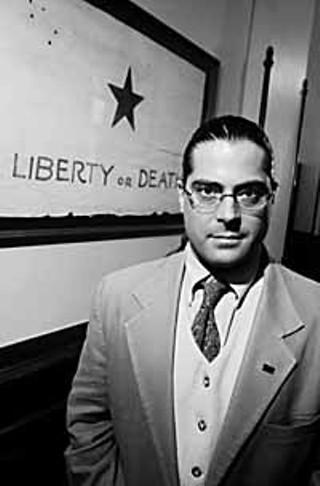 Will Harrell as a young man
Will Harrell as a young manACLU research into Paschall’s Task Force revealed that, “Every year, about 10-15% of the young black male population have been arrested and most of these individuals were “rounded up” in a mass arrest on a single night that was highly publicized on the television and in local newspapers.”
If what went down in Tulia and Hearne was typical, Texas had a problem.
When the annual roundup of Black suspects rolled around, Paschall pressured the vulnerable Derrick Megress into making at least twenty cases on members of his community. Paschall revoked the unstable young man’s parole and threatened him with between 60 and 99 years in prison. When he remained hesitant, Paschall said he would prosecute members of Megress’s family. Megress protested that no one in his family had committed any crimes. Paschall just smiled. The truth was irrelevant. Megress says that Task Force members, led by commander Rod Garney, upped the ante through regular beatings and death threats.
Abuse this blatant, the ACLU argued, required the knowledge and blessing of key officials in Hearne and Robertson County. This became more than a hunch when attorneys representing the victims of the Megress operation started talking to Amy Paschall-White, one of John Paschall’s two daughters. Amy had been close friends with some of the Black girls in her high school, and had been put off by her father’s casual racism for years. Amy “used to hang out with blacks,” Shaun Cooks told me in a letter. One day in the mid-1990s when Cooks was thirteen or fourteen, he saw Paschall’s daughter driving down the road in her father’s blue truck. She was accompanied by several of her Black girlfriends, and they were chatting and laughing like typical high school kids. Suddenly, a cop car pulled the truck over. An enraged John Paschall climbed out of the passenger’s side of the cop car, raced to the truck his daughter was driving and began berating her. To a Junior High kid like Shaun, the scene was hilarious. He started laughing. The District Attorney fixed him with “a death stare”. This made him laugh all the more. He would soon learn that Paschall had a long memory.
Amy Paschall-White was a grown woman by the time of the Megress drug bust, and she spoke freely with ACLU attorneys. She remembered her father turning to task force commander Ron Garney and announcing “it was time to round up niggers” and “make niggers shit in their pants.” On one occasion, she said, Paschall told Garney that if they wanted to get rid of all the blacks in town they’d have to “bomb Columbus Village” (a housing complex inhabited by Black residents).
Asked in a deposition if he had ever used the word “nigger”, Paschall laughed. You would have a hard time finding anyone in Hearne’s white community in Hearne who didn’t use that word on a regular basis, he said.
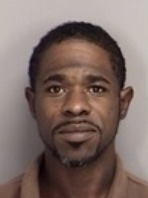 Derrek “Little D” Megress
Derrek “Little D” MegressPaschall and Garney made everything as simple as possible for their confused and conflicted informant. Red Crowell, another of Paschall’s close associates, showed Megress how to grind rocks of crack cocaine into powder to create evidence. In Tulia, Tom Coleman had used the same trick. So long as the baggie of powder had even a pinch of actual cocaine it would test positive. That was all that mattered.
At first, Megress told his task force handlers that his targets were never home when he called. He was informed that when they sent him out to make a case on an individual he needed to return with a baggie of drugs and a story to tell. After making alleged buys from several of his friends and associates in the Black community, Megress told Paschall and Garney that he was finished. In that case, they said, they would round up the suspects he had already implicated, put them in the same cell, tell them that Megress was their accuser, and then throw him in the cell with his victims.
On another occasion, Paschall told Megress that if he didn’t cooperate, “he would make sure another inmate raped me every day.”
Eventually, Megress caved to the pressure, turned in the requisite evidence and what purported to be taped conversations with the people who sold him drugs. Then the task force swept up twenty-eight Hearne residents, dragging many of them to the county jail in front of the television cameras.
As is typical in these cases, court appointed attorneys counseled their clients to take whatever plea deal Paschall offered. Informed that defendants had never met Derek Megress, the message didn’t change. “Take the deal,” defendants were told, “there’s nothing we can do.”
 Regina Kelly
Regina KellyMany defendants, especially those with no prior offenses, took this advice. Others, like Regina Kelly, a twenty-five-year-old waitress, refused. Her mother was adamant that she shouldn’t plead guilty to something she didn’t do. When Kelly was arrested in the middle of a shift at the restaurant where she worked, she thought it must be about unpaid traffic tickets. But no, she stood accused of being a drug kingpin pedaling dope to the boys and girls of Hearne.
Interviewed for a PBS special, Kelly described the impossible situation she was in:
When Kelly refused to budge, Paschall threatened to have CPS take her kids. Her court appointed attorney still refused to investigate.
My lawyer came to me and suggested 10 years probation. And like I told him, I wasn’t going to take it if I did not do this. I didn’t do this. They have no evidence, no nothing. “Everything is screwed up, and you still want me to plea out with them?” And I wasn’t going to do it. Later on, he came back with five years probation. The DA went from 10 years to 5 years. And I told him the exact same thing. And he kept urging me and encouraging me to take it because if I went to trial, then I would be facing 5 to 99.
Slowly, the tide began to turn. Brad Wyatt, an attorney from nearby Bryan, Texas, was appointed to represent Corvian Workman, a close relative of Shaun Cooks. Charles Workman, the defendant’s father, was determined that his son’s case would be investigated. Wyatt found that his client had been cooking chicken-fried steak at a birthday party with forty family members at the very hour Megress was supposedly buying drugs from him. Wyatt started looking into some of the other cases to see if a pattern could be established. Sure enough, several other defendants had alibis as airtight as Corvian’s.
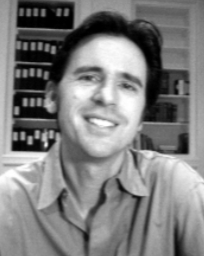 Graham Boyd
Graham BoydWhen Corvian’s case went to trial, most jurors voted to acquit. That’s when Graham Boyd of the ACLU stepped in. Hearne was beginning to look like a second Tulia. I made five trips to Hearne in the ensuing months, usually in the company of one of the Tulia defendants. A series of community meetings had been arranged to the affected community informed and resolute. Knowing that our efforts in Tulia were showing fruit, the families of the Hearne defendants were encouraged to fight.
Paschall’s plight became so desperate that he was forced to drop the charges against the defendants who hadn’t taken a plea. In the end, even those cases were dropped. Like Tom Coleman, Derrick, “Little D”, Megress simply wasn’t reliable under oath. Unlike Coleman, Megress admitted as much, telling defense counsel attorneys that he had been manipulated into faking cases on innocent people.
In combination, Tulia and Hearne were too much for the system to handle and, by 2006, every last narcotics task force in Texas had disbanded. Scott Henson, who had led the reform fight at the Texas Legislature, was exultant. “We completely changed the way people think about drug enforcement in this state,” Henson told the Texas Observer. “We said all task forces need to go away, and in just a few years, they’re all gone.”
Horror stories like Tulia and Hearne were driven by the same forces that fuel the small-town drug trade. Paschall had a lot in common with the young men he loved to lock up: a critical shortage of gainful employment. Paschall created work for his friends by greasing the machinery responsible for locking up dozens of Black people every year. Cops and prison guards owed their incomes to men like Paschall. Hardly anyone in Robinson County ever took a case to trial. The odds of winning were slight and the consequence of losing was disaster.
By the time the Megress drug bust unraveled, Shaun Cooks was already locked up. That’s the story for next time. When Cooks got into trouble, there was no ACLU to take his case and no motivated attorney like Brad Wyatt to probe the weaknesses in the case against him. But the utter corruption of the Megress sting tells you everything you need to know about Robinson County justice.
Over the years, I have talked to three separate Hollywood projects interested in turning the Tulia drug sting into a feature length movie. Having written Taking out the Trash in Tulia, Texas I knew no one was ever going to make a movie about the messy Coleman fiasco. But in 2009, Tim Disney (the great-nephew of Walt) produced a movie based on the Megress operation. American Violet featured the story of Regina Kelly. In the movie version of the story, Regina became “Dee”, John Paschall became “Calvin Beckett”, ACLU attorney Graham Boyd became “Blake Nelson” and Hearne became “Melody”.
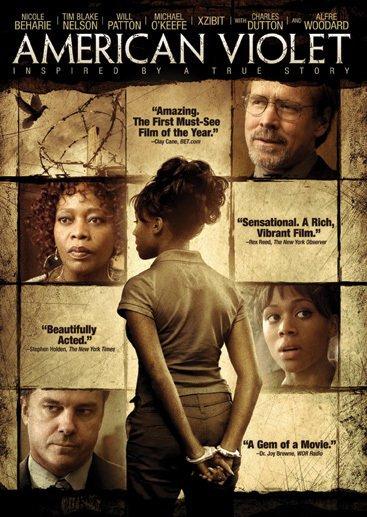
American Violet played in Hearne in early April of 2009, just prior to Shaun Cook’s encounter with Milam County deputy Chris White. “The only way I’d watch it,” Paschall told the Dallas Morning News, “I’d have to be handcuffed, tied to a chair and you’d have to tape my eyes open.”
When Hearne theatres wanted nothing to do with American Violet, St. Mary’s Catholic Church agreed to show it. Handbills appeared around town advertising the screening. Chuck Thompson, owner and operator of Pizzazz Sandwich and Coffee Shop in downtown Hearne, told a reporter from the Bryan Eagle that Phillip “Red” Crowell, the officer who taught Derreck Megress how to falsify evidence, showed up at his establishment.
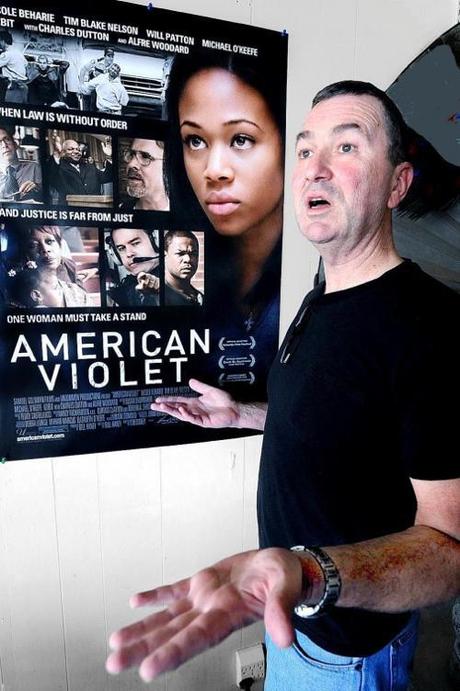 Chuck Thompson
Chuck Thompson“He started to go on a tirade about what happened,” Thompson told the Eagle, “adding that Crowell then turned and told a group of friends that they were leaving. Mark and Sandy Loftus, owners of Robertson County Printing and Office Supplies, said they experienced a similar encounter with Crowell.”
It is highly significant that Chris White, the Milam County Sheriff’s deputy, cut his teeth in law enforcement with the Hearne police department. This, in itself, doesn’t make White a dirty cop; but it suggests that he learned his profession in the most corrupt law enforcement culture in the state of Texas. Since the case against Shaun hinges entirely on White’s uncorroborated word, the moral world that shaped White’s outlook can’t be ignored.
